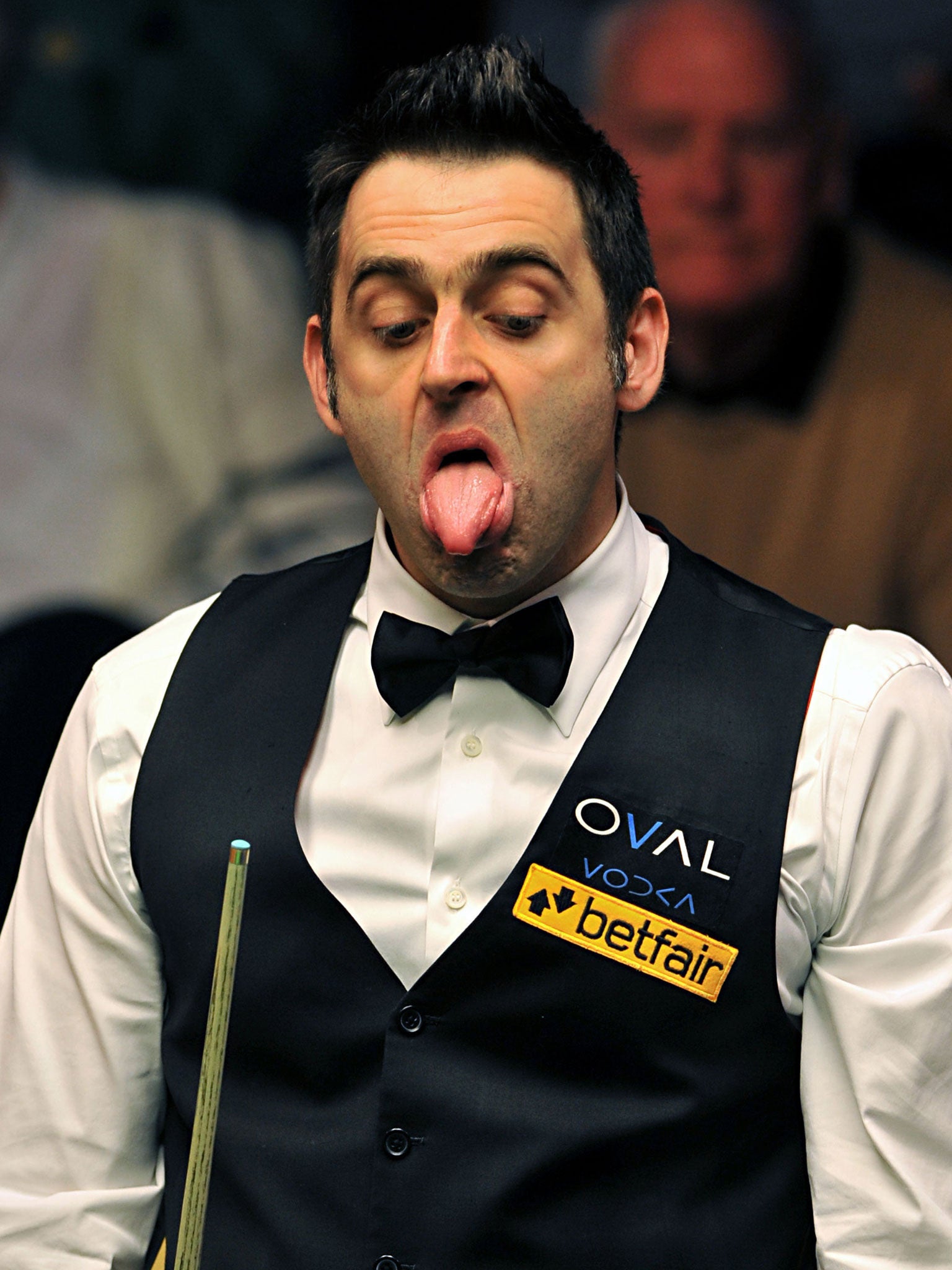Snooker: Rocket Ronnie O'Sullivan's biggest break
After 11 months out he has returned to snooker's top tables - and showed he can still conjure up the old magic

Ray Reardon told the young Steve Davis: "You can't go back to what was nice. You can't stop. You've got to go onwards. Onwards. Always onwards." Thirty years later Davis, his remarkable journey in snooker now largely done, was backstage at The Crucible yesterday watching Ronnie O'Sullivan restart his after an absence of 11 months.
He likened returning to Sheffield to defend his world title to a marathon runner beginning his training the day before the race. However, his 10-4 victory over Marcus Campbell occasionally touched heights rarely seen on the circuit during his exile.
Only when O'Sullivan drew close to victory were there signs of rust. Nine-two up and with just one frame required, he lost two and might have squandered a third. At last, after a tortuous final frame, he was through.
Normally, Campbell might have been expected to be so much cannon-fodder but the 40-year-old from Dumbarton possessed one advantage over the man introduced as "the most naturally gifted player of the modern age". Campbell had played a meaningful competitive match within the last 11 months. O'Sullivan had not.
A year ago, after winning the World Championship for the fourth time he retired, seized by a feeling that there must be more to life than potting snooker balls. But after 11 months there came the recognition that, despite all the long-distance runs that consumed his time, there probably wasn't.
"The journey preparing for the tournament has meant more than coming back here to play," he said. "It gave me something to do. It was never my intention to take a break but I think I was badly advised. I was told not to sign a contract [with governing body World Snooker].
"Had I sat down and talked it through with Barry Hearn [the chairman] it might have been resolved. I got involved in a political war without knowing the facts. I also realised that, at 37, I might not have many more years left." Should he retain his title, he will be the oldest champion since Reardon's victory in 1978, aged 45.
What forced O'Sullivan's hand was a dissatisfaction with the number of tournaments he would be required to play, coupled with a desire to spend more time with his daughter and son, Ronnie Junior, whom he held aloft after his fourth world title last year, which he described as "the most perfect moment of my life". But snooker was what made him and snooker was what pulled him back.
In the mid-1980s, when he was probably the most famous sportsman in these islands, Ian Botham's agent Tim Hudson took him to Hollywood in a ludicrous attempt to market him as an English Rambo. In Los Angeles, Botham discovered that precisely nobody knew who he was. The only thing that made him special was an ability to play cricket.
The same goes for O'Sullivan. He was due into what Cliff Thorburn used to call "The Bear Pit" at 10am but there were so many demands on his time that the tournament's start was delayed by a quarter of an hour. To fill in, the crowd was played a recording of an interview O'Sullivan had done with the BBC about his sabbatical in which he confessed to being frightened by the emptiness of his days and by the fact he now had no income.
As he recognised, part of the tingle of anticipation lay in the uncertainty of what would follow. "It could be a car crash, it could be good." Mostly, it was good. "But the long potting was not great, the safety play was not great," was how he summed up his return. "That's what happens when you don't play for a year, the tightness goes."
The first frame was over in seven and a half minutes, settled by a break of 82 – one of three 80s he made in the morning session. The only century appeared ominously in the opening frame of the evening, which began with O'Sullivan 7-2 ahead.
Campbell proved tenacious. With his crew-cut and barrel frame he had the look of a long-serving police sergeant in LA Confidential, who would come home to spaghetti and meatballs. However, he was no patsy and with luck flowing only slightly differently the Scot would have narrowed the scoreline considerably. His chief problem was that his highest break was 55.
The Rocket briefly looked as if he might run out of fuel. The fifth frame was dragged out for 42 minutes and, with most of the balls bunched up on the baulk cushion, O'Sullivan was forced into repeated errors. Campbell was 24 ahead with the reds gone when he missed the green. With 25 left on the table, O'Sullivan cleared them to edge home by a point. At the time, it felt decisive. The next frame lasted less than 10 minutes and O'Sullivan won it with a break of 85.
He had likened his comeback to Pink Floyd or The Rolling Stones going back on the road. Watching him at The Crucible was not like stumbling into Burbank Studios and watching Elvis Presley's 1968 Comeback Special, save for the fact that like Presley he wore all black in the evening session. However, it was a reminder that snooker's great entertainer has not forgotten his chords.
Subscribe to Independent Premium to bookmark this article
Want to bookmark your favourite articles and stories to read or reference later? Start your Independent Premium subscription today.

Join our commenting forum
Join thought-provoking conversations, follow other Independent readers and see their replies